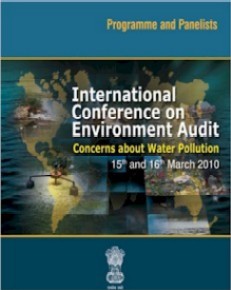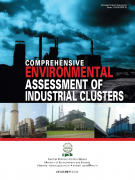/topics/treatment-and-purification
Treatment and Purification
Protect the right to life considering the dignity of women who do not have access to a toilet
Posted on 30 Sep, 2010 10:26 AMSanitation - a big problem in India, as half the population of our country do not have access to this facility. Mumbai is one of the biggest cities in the world and advanced in terms of its commercialization. However, sanitation is one of the most common issues neglected. Our team of women from Jan Jagruti went into the lanes of 3 areas Azad Mohala, Bharatiya Kamla Nagar, Vijay Nagar and spoke to women to understand the severity of the sanitation issue prevailing. These areas have severe problems with public health, due to improper sanitation infrastructure and insufficiency of toilet facilities, compounded by numerous issues of flooding during the monsoon season. Khaaddi, a local area/dumping ground, is widely used by local residents for urination and defecation, leading to the spread of contagious diseases. Though women use paid toilets, the issue of cleanliness and waiting in long queues are the most common problem before them. It is very insecure for them when they use open spaces for defecation.
Successful innovations in solid waste management systems: Examples from five local bodies in Tamil Nadu
Posted on 28 Sep, 2010 11:32 AMThis booklet about the work of Exnora Green Pammal (EGP), produced by UNICEF and published by the Government of Tamil Nadu, illustrates examples of the implementation and impact of solid waste management innovations in five localities in Tamil Nadu. The solid waste management systems in these localities are widely regarded as successes that deserve replication.This document has been produced to inspire and enable more local body authorities to emulate such successes in other parts of the country.
Improving solid waste management services in India is an urgent challenge for all levels of the government. Littering and the indiscriminate disposal of solid waste are widely practiced, polluting India's air, water, soil and inhabitants. Such pollution impedes India's efforts to achieve the Millennium Development Goals (MDG).The nation's measures to combat malaria and other diseases (MDG 6), reduce child mortality (MDG 4), and ensure environmental sustainability (MDG 7) are all hampered by the unsightly and unhygienic conditions created by the accumulation of waste.
Manual on water supply and treatment - CPHEEO (MoUD)
Posted on 15 Sep, 2010 11:17 PMThis manual has been developed by the Central Public Health and Environmental Engineering Organisation (CPHEEO), a department under the Ministry of Urban Development (MoUD) and serves as a standard guide in public health engineering by providing a code of day to day practice for public health engineers to follow.
Manual on sewage and sewerage treatment - CPHEEO (MoUD)
Posted on 15 Sep, 2010 11:07 PMThis manual has been prepared by the Central Public Health and Environmental Engineering Organisation (CPHEEO), a department under the Ministry of Urban Development (MoUD) and aims at meeting the professional needs of practising engineers dealing with the sanitation sector in the country, that focuses on achieving the goal of 'sanitation for all' within a reasonable timeframe.
The manual is a revised version of the earlier one, which was developed in 1977 and was widely used by field engineers engaged in sewerage and sewage treatment. However, a need was felt to revise and update the earlier manual taking into consideration the advancement in technology.
Manual on operation and maintenance of water supply systems - CPHEEO (MoUD)
Posted on 15 Sep, 2010 10:58 PMThis manual has been developed by the Central Public Health and Environmental Engineering Organisation (CPHEEO), a department under the Ministry of Urban Development (MoUD) and is intended primarily for the managers and technicians in-charge of the O & M of the urban drinking water supply systems.
The aim of the manual is to serve as a guide for strengthening the technical, operational and managerial capabilities required of the concerned personnel to operate and maintain water supply services as per acceptable norms of quantity, quality, sustainability, reliability and cost.
International conference on environment audit - Concerns about water pollution - CAG (2010)
Posted on 10 Sep, 2010 05:15 PM This link on the CAG website provides the details of an international conference that was held on 15-16 March 2010, in the backdrop of the environmental audit proposed by the the Comptroller and Auditor General (CAG) of India, for management and conservation of the environment .
This link on the CAG website provides the details of an international conference that was held on 15-16 March 2010, in the backdrop of the environmental audit proposed by the the Comptroller and Auditor General (CAG) of India, for management and conservation of the environment .
The purpose of this conference was to deliberate on the causes of pollution, action taken by governments and civil society to address this and environmental, management and legal interventions needed to put lakes, rivers and ground water on the path of sustainability.
More than 20 experts on water and water pollution issues were invited to share their views as panelists during the conference. Apart from these distinguished panelists, the heads of supreme audit institutions from countries like Austria, Maldives, Bangladesh and Bhutan were also present to share their experiences regarding audit of water pollution in their countries.
Water for All - An educational booklet by Utthan
Posted on 25 Aug, 2010 10:32 AMThis document is an educational booklet on water management, published by Utthan, which works towards empowering women's groups to seek clean and adequate quality of water for all.
The booklet provides background information on water as an important natural resource and the importance of protecting and maintaining the quality and quantity of this natural resource.
The details have been explained in a manner that is simple and understandable and include illustrations that are self explanatory and easy to follow.
The booklet is divided into the following sections:
48% industrial clusters in India are critically polluted: CPCB
Posted on 10 Aug, 2010 11:38 PM A Comprehensive Environmental Pollution Index (CEPI) is a very useful tool to capture the health dimensions of the environment including air, water and land. The CEPI is intended to act as an early warning tool and can help in categorising the industrial clusters/areas in terms of priority of planning needs for interventions.
A Comprehensive Environmental Pollution Index (CEPI) is a very useful tool to capture the health dimensions of the environment including air, water and land. The CEPI is intended to act as an early warning tool and can help in categorising the industrial clusters/areas in terms of priority of planning needs for interventions.
This report by the Central Pollution and Control Board (CPCB) presents the results of the application of the CEPI to selected industrial clusters or areas.
The main objective of the study was to identify polluted industrial clusters or areas in order to take concerted action and to centrally monitor them at the national level. This was in order to improve the current status of environmental components such as air and water quality data, ecological damage, and visual environmental conditions.
Fluoride free drinking water supply in North Gujarat: The rise of Reverse Osmosis plants as a cottage industry - A study by CAREWATER
Posted on 10 Aug, 2010 10:04 PMThe study by Carewater INREM Foundation explores the rise of Reverse Osmosis (RO) plants since 1970s as a cottage industry for providing fluoride free water supply in North Gujarat.
Groundwater contamination and rural water treatment in Gujarat - a discussion paper by Carewater INREM foundation
Posted on 07 Aug, 2010 06:09 PM The state is characterized by varied hydrogeology and vast areas are faced with typical groundwater quality problems like fluoride.
The state is characterized by varied hydrogeology and vast areas are faced with typical groundwater quality problems like fluoride.





